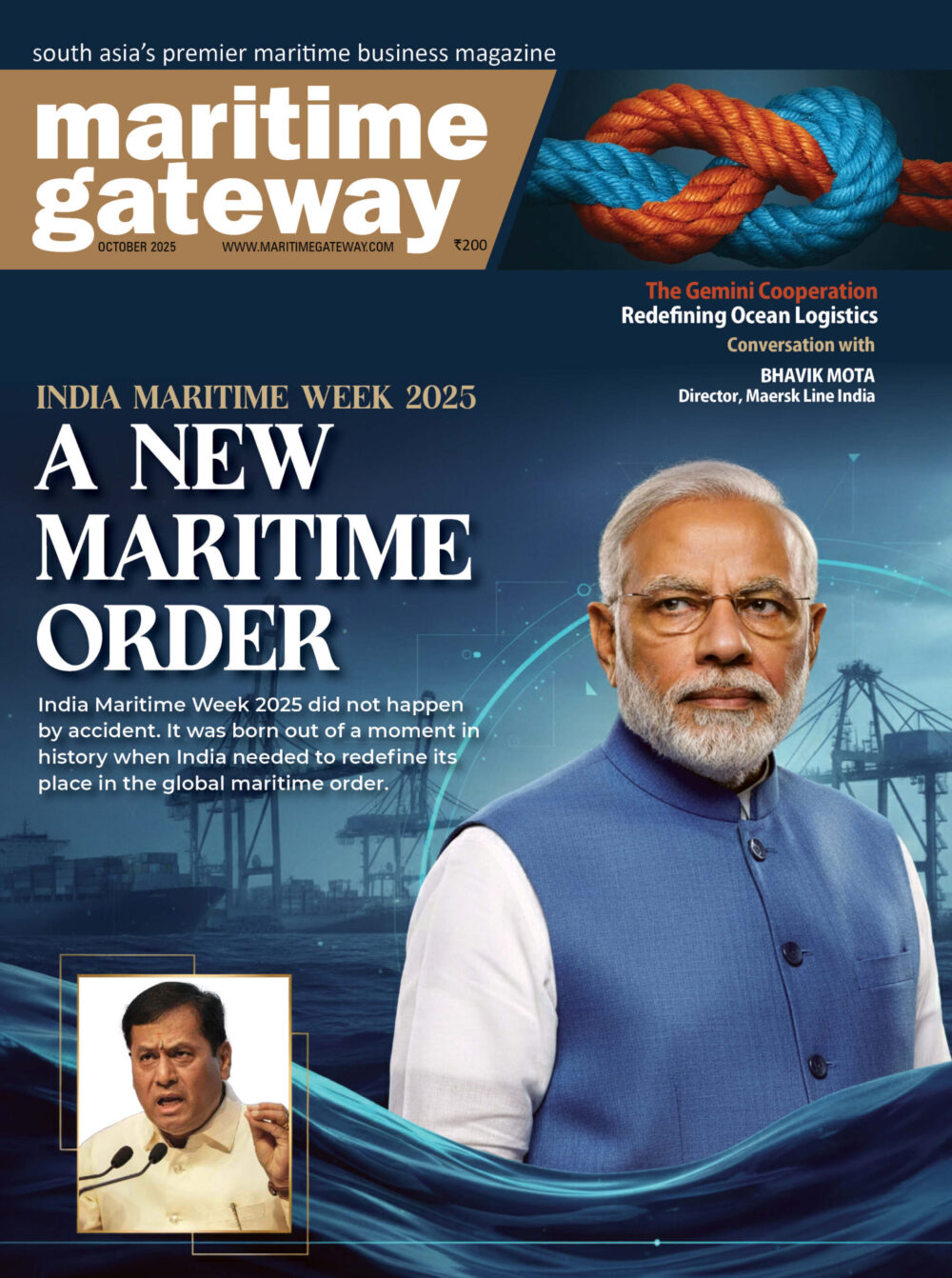For decades, shipping has quietly powered the world. It has connected people and markets, fuelled economies, lifted millions out of poverty, and delivered the essentials of modern life. From food security to energy security, the shipping industry has been indispensable—not just as a facilitator of trade, but as a force for global development.
And yet, as we gather today, we do so against the backdrop of rising political tensions, growing protectionism, and mounting global uncertainty. Long-standing principles that underpinned maritime trade—such as collaboration, freedom of navigation, and belief in open markets—are increasingly under pressure. The shipping industry, long a symbol of global unity, is being drawn deeper into the geopolitical crossfire.
But with every challenge comes opportunity. At this moment of disruption, shipping has a chance to lead—not just on trade, but on climate, on innovation, and on what it means to be a truly global industry in a fragmented world.
More than steel and cargo: Shipping as a global community
Our industry has always thrived on cooperation. It reminds us that we are not isolated islands, but part of a global community. For years, we believed in free trade and the idea that countries prosper by working together. But today, those ideas face increasing strain.
Geopolitical rivalries now spill into maritime corridors. Conflicts in strategic chokepoints, from the Red Sea to the South China Sea, are no longer rare events but recurring realities. Maritime safety, long governed by global norms, is now subject to regional posturing. As a result, shipping is no longer just navigating storms at sea—it is navigating the turbulent waters of international politics.
Despite this, the resilience of our sector endures. And now, in this moment of recalibration, shipping has a new role to play—as a stabilising force in an uncertain world and a vanguard of climate leadership.
The climate turning point: From talk to action
In January this year, something remarkable happened: global emissions fell—for the first time outside a pandemic. While the decline may be temporary, it signals that change is indeed possible when governments and industries act with purpose.
But the truth is, we are still far from achieving our climate goals. The science is clear. The urgency is growing. And our industry, which accounts for nearly 3 per cent of global emissions, must now accelerate its course toward zero.
Fortunately, we are no longer just discussing the destination—we now have a map. The International Maritime Organization’s (IMO) revised strategy marks a historic milestone. For the first time, countries agreed not only on the adoption of a fuel standard, but also on the framework of an economic mechanism to reduce emissions. Broad support was achieved for a system that would cover 85 per cent of the sector’s emissions.
This is a game-changer. It sets a clear direction: net zero by 2050. And it sends an unmistakable message to shipowners, charterers, fuel producers, and financiers—decarbonization is no longer optional, it is inevitable.
Norway played a key role in these negotiations. Our envoy, Sveinung Oftedal, led with clarity and conviction, helping forge consensus among divergent global interests. But the job is far from over. The upcoming Marine Environment Protection Committee (MEPC) meeting in October will be critical. To finalise the new climate policy, we will need two-thirds majority support. That requires not just diplomacy—but courage. And most importantly, it requires leadership.
More than regulation: It’s about trust
These new standards are not just about CO₂ metrics or compliance tick-boxes. They are about trust. Trust that the industry can align with global climate goals. Trust that we can innovate, invest, and transition without compromising competitiveness or safety. And trust that this industry—often overlooked—can be a driving force for global transformation.
The Norwegian message is unequivocal: Norway is committed. Our shipowners are investing, our shipyards are innovating, and our policymakers are aligning. But shipping is not a national business. It is a global industry—and therefore it demands global frameworks, global standards, and global enforcement.
Without global alignment, we risk a fragmented transition. Some regions will push ahead while others lag behind. This uneven decarbonisation would not only distort competition but also weaken the credibility of our collective commitments.
People at the heart of progress
Let us not forget what truly powers this industry: people. As a young boy growing up on the island of Bøgerå in the 1970s, I watched two local brothers, Lovritz and Christian Edersvik, start their journey with a single fishing boat. From those humble beginnings, they grew into major players—building offshore fleets and eventually establishing two large shipping companies. Their success was not rooted in market cycles or state subsidies. It was rooted in belief—in people, in community, in purpose.
I once asked one of them what made them succeed. He simply replied, “Because people like you, who studied business and HH, believed in more than just profit. We believed in people.”
This belief manifested not just in ships or infrastructure—but in jobs, sports arenas, schools, and dignity. And many of you here today follow that same path. You create value not just for shareholders, but for entire communities.
As we move into an era of green transformation, let us never lose sight of this human foundation. Behind every ship is a crew. Behind every ton of cargo, a supply chain of livelihoods. Behind every emission target, the health of future generations.
The path ahead: Leadership in action
The road to decarbonisation will not be easy. It requires massive investment, new fuel systems, retraining of seafarers, collaboration across fragmented markets, and a rethinking of business models. But the prize is immense—a resilient, respected, and responsible industry that defines the future, rather than follows it.
We have momentum. The IMO has laid out the framework. The private sector is innovating. Public awareness is rising. But now, we must move faster, with greater certainty and shared commitment.
The opportunity is not just to decarbonize, but to lead—to show the world that shipping, despite being one of the oldest industries, is among the most forward-looking.
A final message: Unity, not isolation
Let us remember what makes shipping so powerful. It is not just tonnage. Not just technology. It is unity.
We cross borders. We link continents. We make globalization real. And in doing so, we remind the world that while nations may differ, we are bound by common challenges—and common opportunities.
So let this be our charge: to navigate complexity with courage, to champion global cooperation, and to lead the green transition not just in word, but indeed.
Because in the end, our greatest strength lies not just in the steel of our ships, but in the spirit of our people.
(This article is based on a speech by Knut Arild Hareide, CEO of the Norwegian Shipowners Association, at Nor-Shipping 2025).









